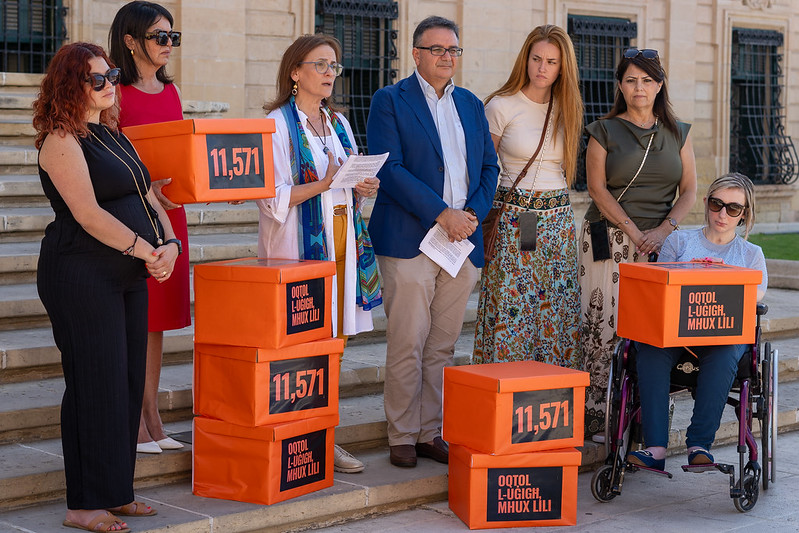In a symbolic gesture on the day in which a public consultation on the government’s proposed legalisation of assisted dying ends, the Life Network Foundation printed out all 11,571 submissions it has received and delivered them to the Office of the Prime Minister at the Auberge de Castille.
The submissions, delivered in large orange boxes, were originally sent to the website established by the foundation for the consultation exercise as part of its Oqtol l-Uġigħ, Mhux Lili campaign. While they have already been sent electronically to the government consultation website, the campaign made a point of delivering physical copies in person “to ensure that no opinions or voices are forgotten in this consultation.”
The press was invited for the occasion, and foundation chair Tonio Fenech emphasised the enthusiastic support the campaign had received, and welcomed the over 40 organisations which have expressed a clear position opposing the introduction of assisted voluntary euthanasia (AVE).
Opponents to legalising AVE have generally emphasised the need to strengthen palliative care, and LNF was no exception to the rule, with Fenech stating that a lot still needed to be done in Malta in this regard.
Speaking to Newsbook Malta, he noted that the government has launched a palliative care strategy which aims to address this over the next 10 years.
“I believe that we should speed this up,” he insisted. “Why leave people in pain for 10 years before providing them with the care that they need?”
Fenech – a former finance minister – also expressed concerns about the fact that euthanasia could be cheaper than alternative remedies, thus potentially providing an incentive to encourage the practice. He cited a study showing that Canada saved $150 million in just one year.
The NGO insisted that the promised safeguards could not be fulfilled as no law can fully prevent abuses, especially among the vulnerable. It also argued that legalising assisted dying could erode trust in the medical profession.
Moreover, it also insisted that the government’s proposal was “gravely flawed” because prognosis – the proposals would give those with no more than six months to live the opportunity to seek assisted dying – was not an exact science.
Source: Newsbook.com.mt





